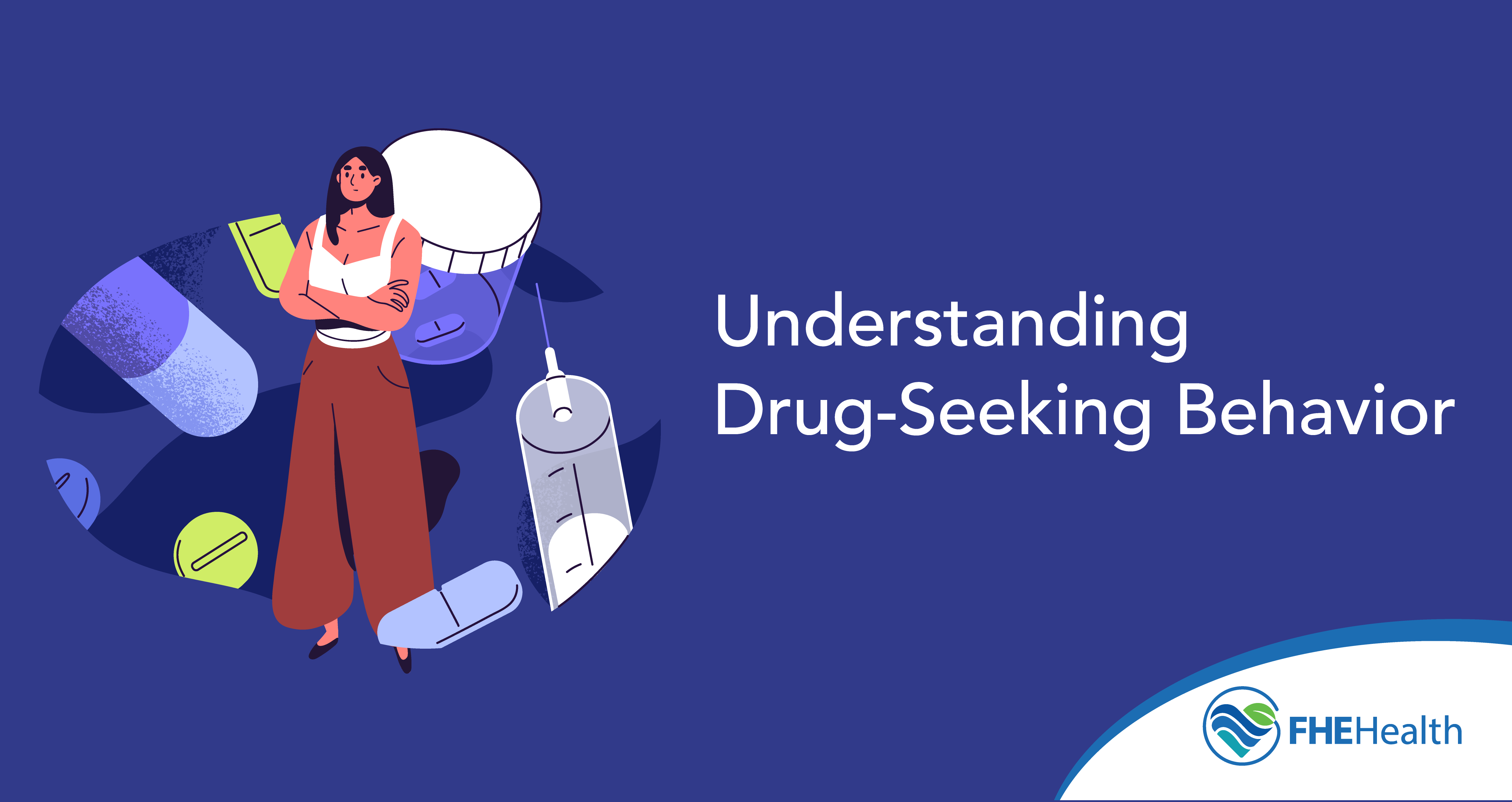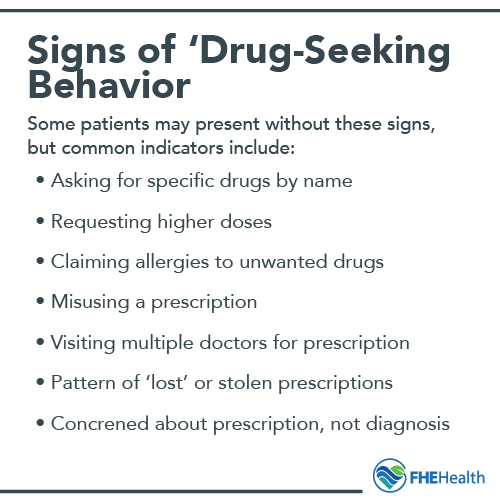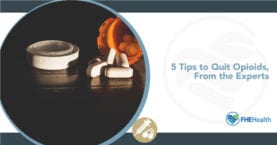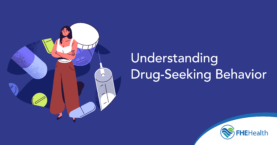
Prescription drug addiction is a challenging and often misunderstood issue. According to the CDC, nearly 8.6 million U.S. adults misuse prescription drugs each year. For people struggling with substance use disorders, drug-seeking behavior can become a way to maintain their addiction, often involving attempts to obtain prescriptions from doctors or pharmacies under false pretenses. While these behaviors may seem manipulative, they’re typically driven by the powerful grip of addiction. Recognizing drug-seeking behaviors is critical for health care providers, loved ones, and community members to intervene compassionately and prevent additional harm.
What Is Drug-Seeking Behavior?
Drug-seeking behavior, also called pain-seeking behavior, refers to the actions individuals take to acquire prescription medications, particularly opioids, stimulants, or sedatives, for nonmedical use. From the perspective of health providers, it’s important to identify this behavior early, as it can lead to significant health risks, including overdoses and untreated addiction.
Drug-seeking may include tactics like exaggerating symptoms, visiting multiple providers (doctor shopping), or refusing non-drug treatments. While these behaviors are rooted in addiction, they also pose ethical and professional challenges for medical and mental health caregivers. Recognizing drug-seeking behavior is the first step toward addressing the underlying issues and providing the right support and treatment.

Common Signs of Drug-Seeking Behavior
Healthcare professionals should stay vigilant for signs of drug-seeking behavior. These behaviors often reveal themselves during appointments or over the course of treatment.
First-Time Visits
Patients who exhibit drug-seeking behavior may visit a doctor for the first time and request specific medications by name. They might claim allergies to other drugs or describe their condition in ways designed to ensure they receive their preferred medication.
Multiple Past Doctors
A common red flag is a patient’s history of visiting multiple doctors or emergency rooms. This doctor shopping can indicate efforts to obtain prescriptions from various sources to avoid detection.
Resistance to Alternative (Non-Drug) Treatments
Patients may refuse non-drug treatment options, such as physical therapy or over-the-counter medications, insisting only specific prescription drugs will work. This resistance can signal an underlying dependence.
Overreporting of Pain Severity and/or Duration
Some individuals may exaggerate their symptoms or claim unrelenting, severe pain that’s disproportionate to the observed condition. This overreporting is often a tactic to justify receiving stronger medications.
Top Drugs for Seekers
Certain classes of drugs are especially likely to be misused, and they tend to come up more than others when a person is seeking drugs at a clinic or pharmacy. Medicines that don’t have pronounced psychotropic effects, such as antibiotics, are almost never sought, while others can be a red flag. These include:
- Oxycodone
- Fentanyl
- Codeine
- Morphine and its derivatives
- Antipsychotics, such as quetiapine and olanzapine
- Dexamphetamine
- Methylphenidate
- Various anabolic steroids
What Can You Do When Confronted With Drug-Seeking Behaviors?
When faced with drug-seeking behavior, healthcare providers must balance compassion with clinical judgment, and open communication is key. Expressing concern and discussing alternative treatments can help patients feel supported. Providers should carefully document interactions, communicate with colleagues, and consult state prescription drug monitoring programs (PDMPs) to prevent prescription misuse, as well as check patients’ medical records to see whether they’ve been flagged for drug seeking in the past.
Dangers of Drug-Seeking Behavior
Drug-seeking behaviors are risky and also carry severe consequences. Key dangers include:
- Risk of overdose. Misusing prescription medications increases the likelihood of fatal overdoses.
- Risk of harmful drug interactions. Combining drugs without medical oversight can have life-threatening consequences.
- Risk of arrest. Illegally obtaining or misusing prescriptions can result in criminal charges.
- Risk from continued, untreated addiction. Drug-seeking behaviors prevent individuals from accessing the help they need, thereby prolonging their struggle with addiction.
Getting Help for Drug Addiction
Breaking free from drug-seeking behavior begins with acknowledging the problem and seeking help. Addiction treatment programs like those offered by FHE Health provide comprehensive care, including therapy, medical support, and resources for long-term recovery. If you or someone you know is struggling with drug-seeking behaviors, contact FHE Health today to start the journey to recovery. Help is available, and a healthier future is possible.









